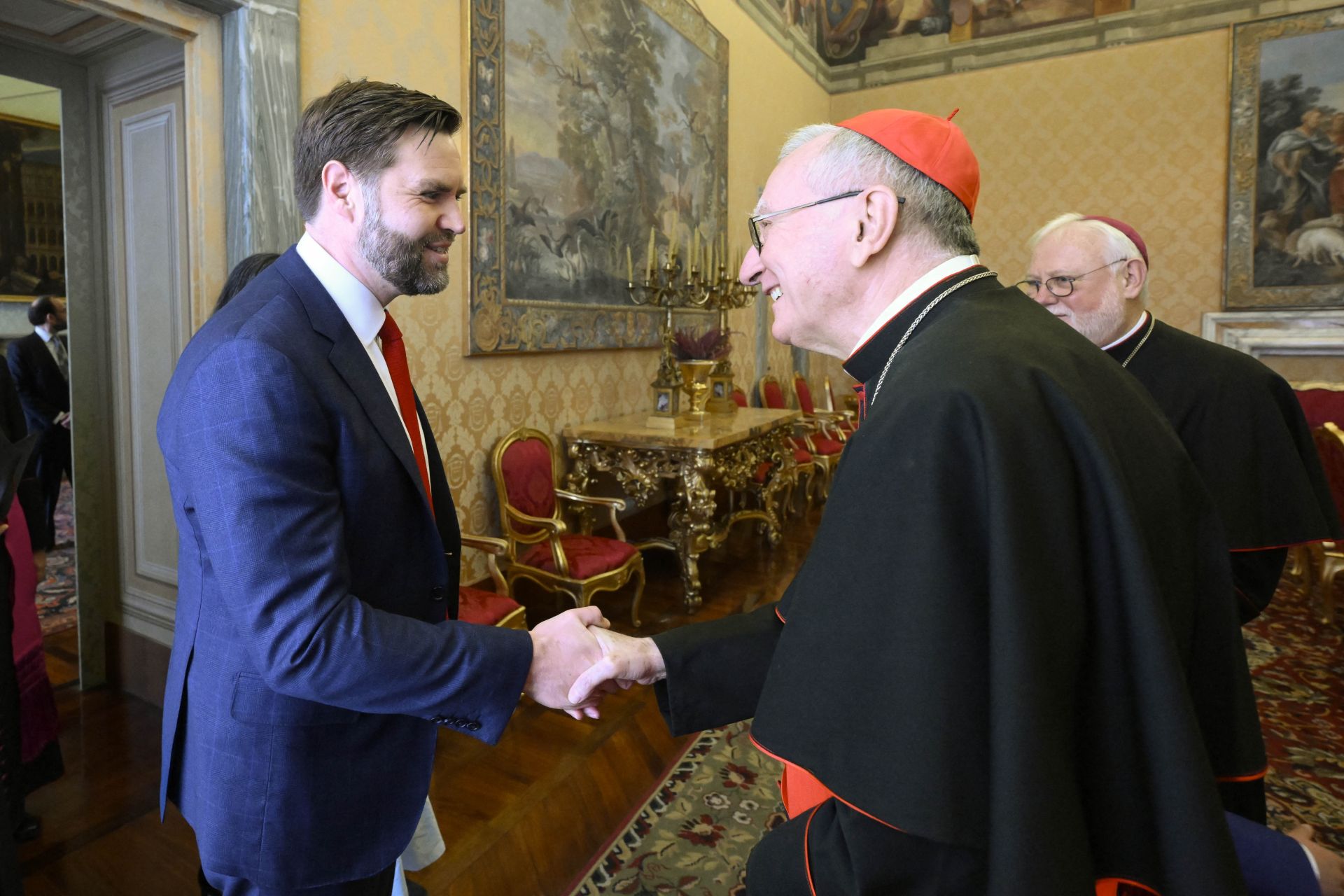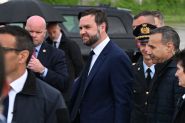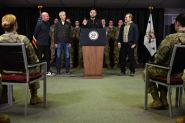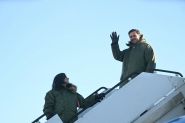- Home
- Middle East
- Vance and Francis: Divergent Values but Shared Ideas

This handout photo, taken on April 19, 2025, by Vatican Media, shows Cardinal Secretary of State Pietro Parolin welcoming U.S. Vice President JD Vance at the Vatican. ©Vatican Media / AFP
Pope Francis is the spiritual leader of the world’s 1.4 billion Catholics, advocating for a more open Church and compassion toward migrants.
U.S. Vice President JD Vance, a devout Catholic convert, is committed to shaping America into a bastion of conservative values.
After Vance met on Saturday with the Vatican’s Secretary of State, Cardinal Pietro Parolin — the Holy See’s second-highest-ranking official — there was still no word on whether he would meet the pontiff, who is recovering at 88 from a serious bout of pneumonia.
As Rome prepares for Easter Sunday — the most sacred date in the Christian calendar — both Vatican and U.S. officials remained tight-lipped about the prospect of a meeting between Vance and Francis, or whether one had already taken place.
Given recent tensions between Francis and the administration of President Donald Trump, such an encounter would likely be delicate.
While ideological differences between Vance and Francis are evident, the two also share common ground on several issues, said François Mabille, director of the Geopolitical Observatory of Religion at IRIS in Paris.
“There is shared opposition to gender theory and a strong emphasis on religious freedom — at least as Vance interprets it,” Mabille told AFP. “Some of the criticisms Vance made during his European trip echo positions within the Vatican under Pope Francis.”
At February’s Munich Security Conference, Vance diverged from the official agenda to decry what he called a decline in free speech in Europe and to highlight the continent’s “big immigration problem.”
Migration is a particularly contentious topic between Vance and Francis — and one that was reportedly discussed during Vance’s meeting with Parolin. The Vatican described the conversation as an “exchange of opinions” but did not elaborate further.
Despite sharp contrasts over immigration, the two men share a socially conservative worldview, including opposition to abortion and skepticism of progressive social movements — or what Vance and his allies call “wokeism,” Mabille said.
He described Vance as a representative of a “combative Catholicism,” emblematic of a post-liberal America.
A Fragile Opening?
Vance’s alignment with the far-right wing of the U.S. Catholic Church stands in contrast to Francis’ more inclusive and moderate approach. Still, Mabille sees opportunities for cooperation — particularly regarding the war in Ukraine.
“There’s a chance here for the Holy See to reassert its voice on the global stage,” he said, noting the pope’s repeated but largely ignored calls for peace.
For both Vance and Francis, setting aside their differences — especially on migration — might serve mutual interests.
In February, Francis drew criticism from the White House after he condemned Trump’s proposed mass deportation of migrants, calling it a “major crisis.”
The pontiff has consistently described anti-migrant rhetoric as “madness,” and has also chastised conservative American Catholic leaders for their rigid positions.
Vance, 40, a former Marine who converted to Catholicism in his mid-30s, has adopted a nationalist tone when addressing immigration. He has publicly criticized the U.S. Conference of Catholic Bishops for opposing Trump-era immigration policies.
In a January Fox News interview, Vance framed his stance on immigration as consistent with Christian teaching:
“You love your family, then your neighbor, then your community, then your fellow citizens. And only after that, you can focus on the rest of the world,” he said.
Another major divide between Vance and Francis lies in their views on Islam.
“Christian nationalists — including Vance and Trump — frame their agenda as defending Christian civilization,” said Mabille. “This is in stark contrast with Francis’ emphasis on dialogue and openness.”
Vance and Trump also strongly oppose Diversity, Equity, and Inclusion (DEI) initiatives, which aim to ensure equal opportunities regardless of ethnicity, gender, disability, or sexual orientation.
Francis, by contrast, has championed inclusion since becoming pope in 2013 — promoting women within the Vatican hierarchy and encouraging outreach to LGBTQ+ Catholics, including the blessing of same-sex couples.
With AFP
Read more



Comments